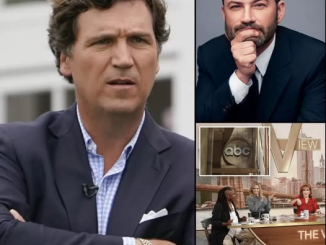
In a dramatic showdown that has rattled both Wall Street and Washington, Elon Musk’s efforts to avert a trade war between the U.S. and China have been thwarted, leading to a staggering $100 billion loss for Tesla. The unexpected twist? Donald Trump chose to side with former trade advisor Peter Navarro over the tech titan, causing tensions to flare and setting the stage for a political and economic battle unlike any we’ve seen before.
💥 The Tariff Tensions Begin
The conflict first emerged when the Trump administration proposed a series of steep tariffs on Chinese goods, threatening to disrupt global supply chains. Musk, ever the defender of Tesla’s interests, warned the White House that these tariffs could significantly hurt Tesla’s bottom line, especially given its reliance on Chinese manufacturing and materials.
In a series of behind-the-scenes meetings, Musk reportedly tried to convince Trump and his advisors to reconsider the tariffs, arguing that they would hurt American consumers and manufacturers more than China. Musk even presented data showing how Tesla’s global expansion and China-based production were key to maintaining the company’s competitive edge.
But despite Musk’s arguments and his close ties with the Trump administration, the President doubled down on his hardline stance.
🚨 Navarro Over Musk
It was at this critical juncture that Peter Navarro, the former White House trade advisor known for his hawkish views on China, emerged as the dominant force in the tariff debate. Trump, who had long admired Navarro’s no-nonsense approach to international trade, chose to side with him, leaving Musk on the losing end of the political equation.
Navarro pushed for even tougher tariffs on Chinese imports, including critical materials used in electric vehicle manufacturing. While Musk argued for the globalist perspective—that America’s prosperity relied on international cooperation—Navarro’s nationalist viewpoint ultimately gained more traction.
As Musk’s appeals went unheard, the tariffs were imposed, and the resulting economic fallout hit Tesla hard.
💸 The $100 Billion Loss
The financial impact was swift and severe. In the days following the tariff announcement, Tesla’s stock price plunged as investors fretted about the long-term effects of the trade war. The company saw its market value drop by $100 billion, with analysts predicting that the fallout from the tariffs would drastically reduce Tesla’s profit margins, especially in markets where it competes with Chinese automakers.
Tesla’s reliance on Chinese factories for key components and battery materials meant that the new tariffs would increase production costs—costs that would ultimately be passed down to consumers.
🧩 The Political Fallout
Beyond the financial loss, Musk’s relationship with the Trump administration began to sour. Despite his earlier support for Trump’s policies, particularly on deregulation and space exploration, Musk found himself at odds with the administration’s economic strategy. As the trade war escalated, Musk became one of the most vocal critics of the White House’s economic policies.
Meanwhile, Navarro took to publicly defending the tariffs, arguing that they were essential for protecting American jobs and countering China’s unfair trade practices. He claimed that the economic hit to Tesla was a small price to pay for securing long-term economic sovereignty for the U.S.
💥 The Future of Musk’s Influence
As Tesla continues to absorb the shockwaves from the trade war, Musk’s influence over Washington appears to be waning. The President has moved in a different direction politically, and with Navarro’s influence growing, Musk may find it harder to convince the White House to change course on issues like tariffs, international trade, and the future of electric vehicles.
However, Musk’s next move remains uncertain. Will he continue to push for a more globalist agenda, or will he pivot and find new allies in Washington? Could the $100 billion loss be just the beginning of a larger shift in the balance of power between Silicon Valley and the White House?
One thing is for sure: the battle between Musk and Navarro is far from over, and it will likely shape both the future of Tesla and the broader U.S.-China trade relationship for years to come.
🌍 What’s Next?
As the dust settles, both Musk and Trump’s economic vision remain polarizing forces in American politics. The fallout from this clash of ideologies could continue to reshape the global economy, leaving both Tesla and the White House grappling with the consequences of a trade war they never quite expected.
The $100 billion loss is just the tip of the iceberg—what comes next could be even more unpredictable.


